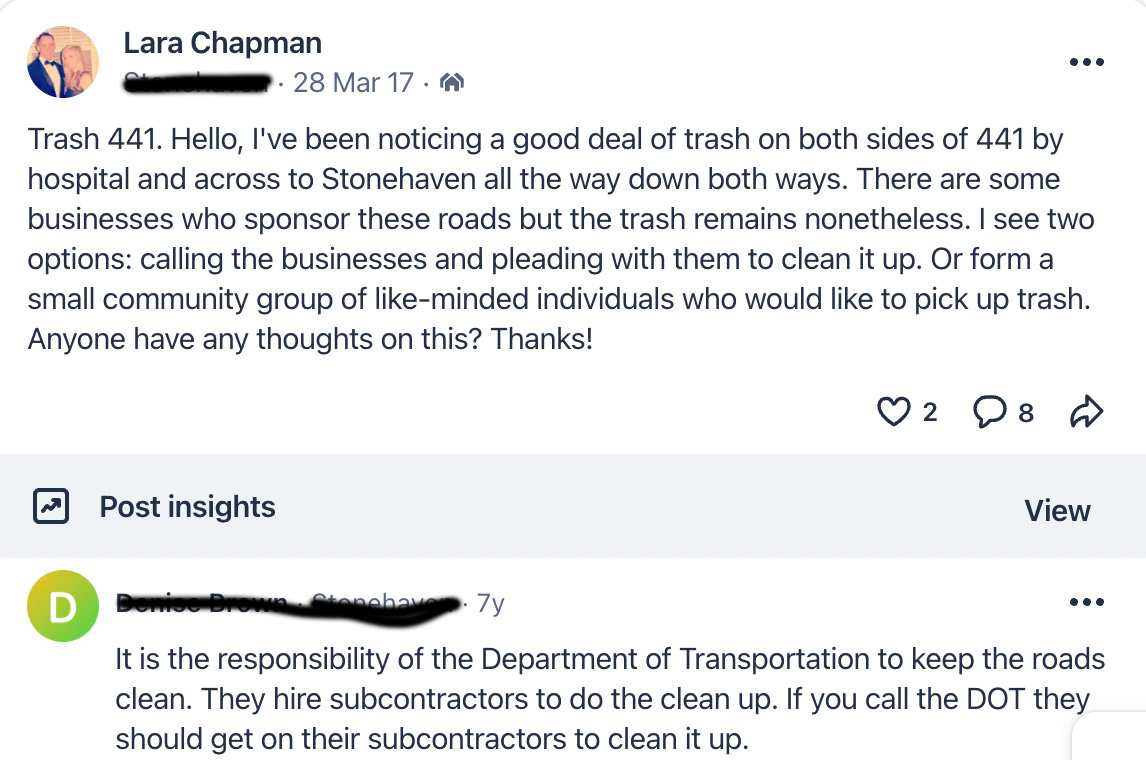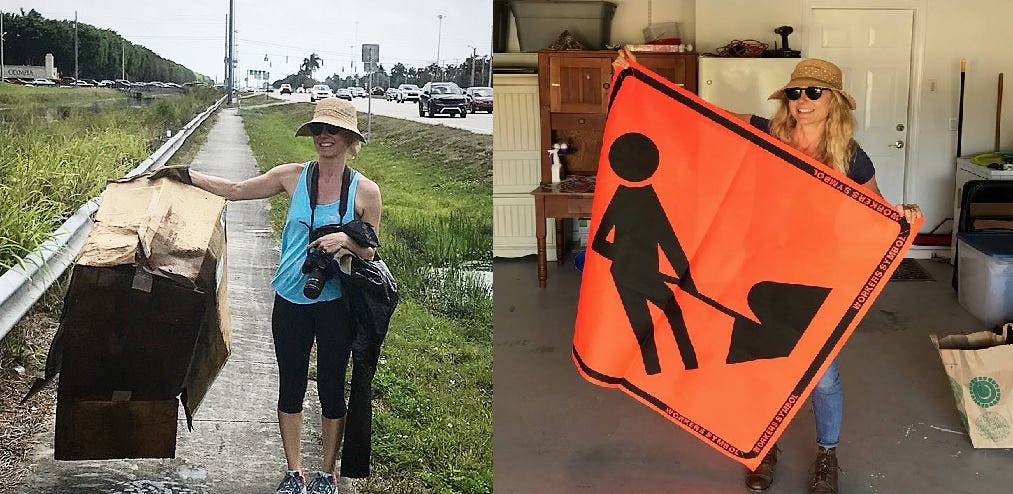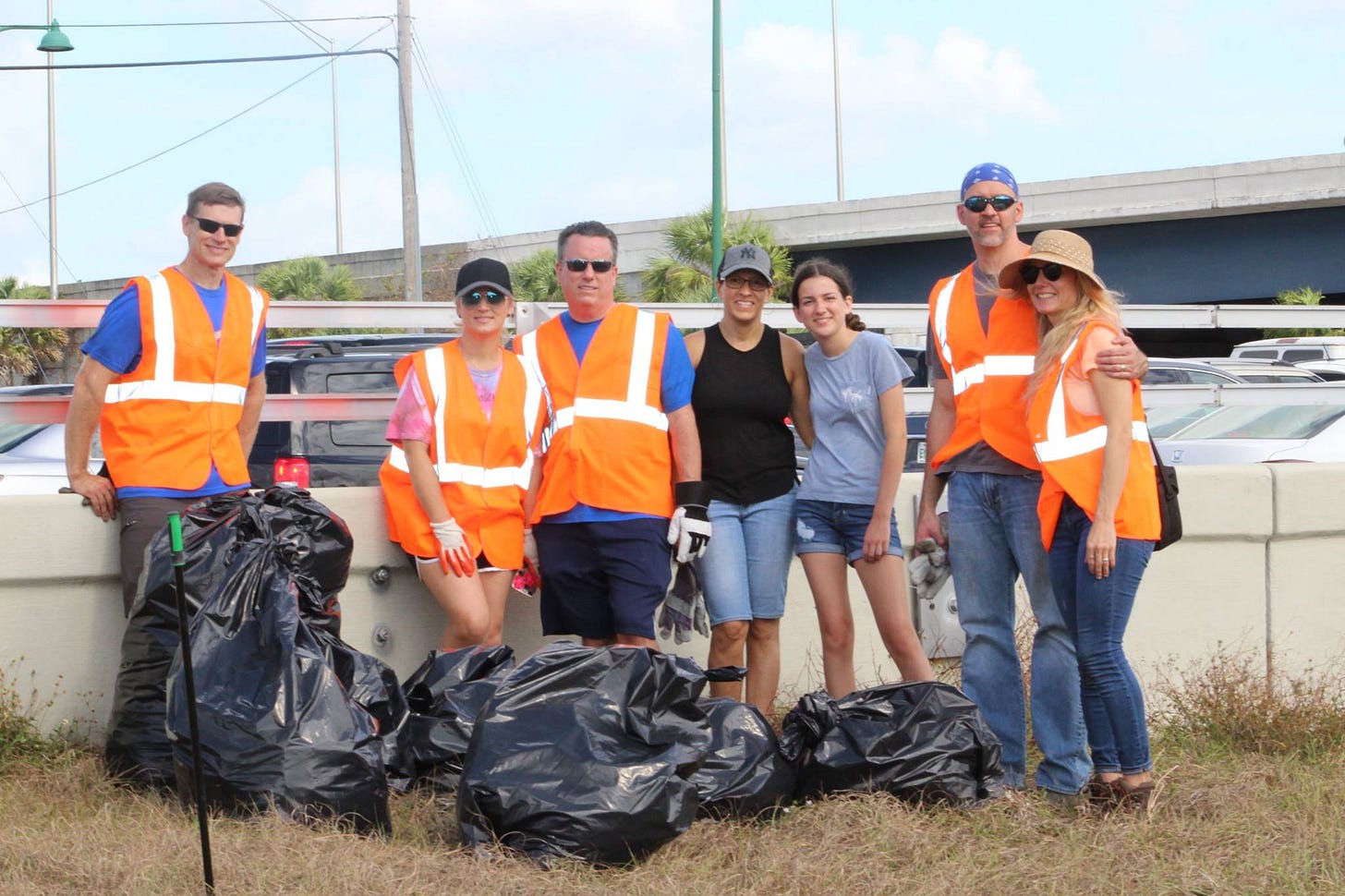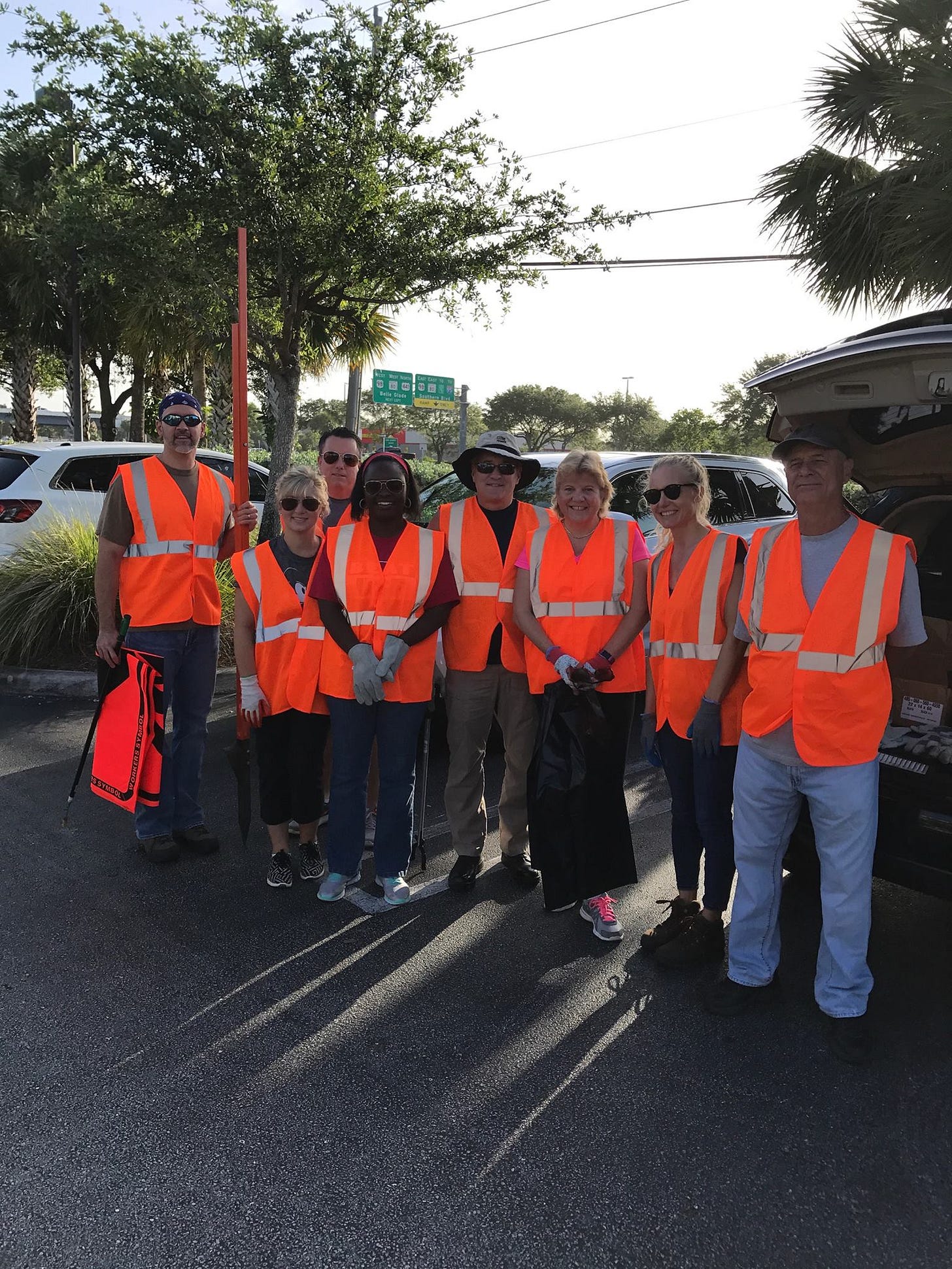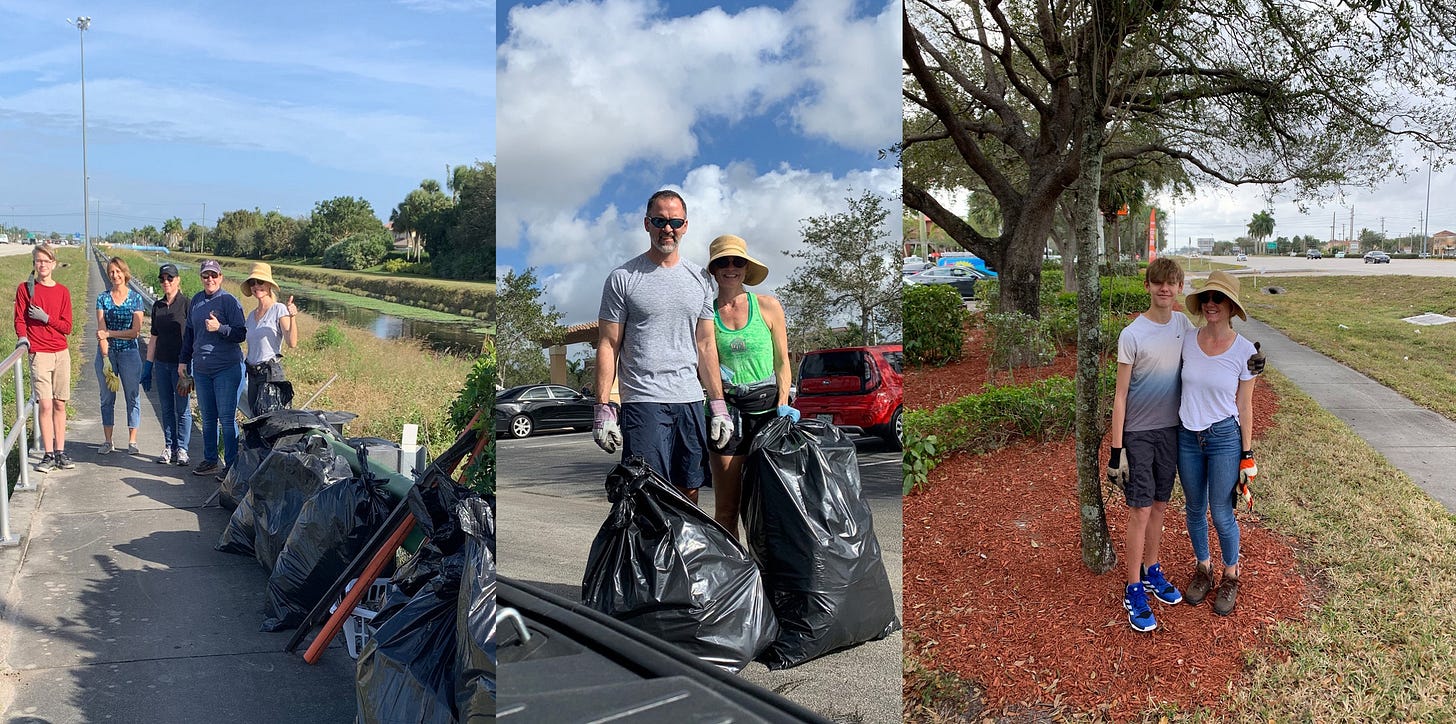It's the Litter Things That Count
Picking up a small piece of trash could make a big difference – but you knew that already.
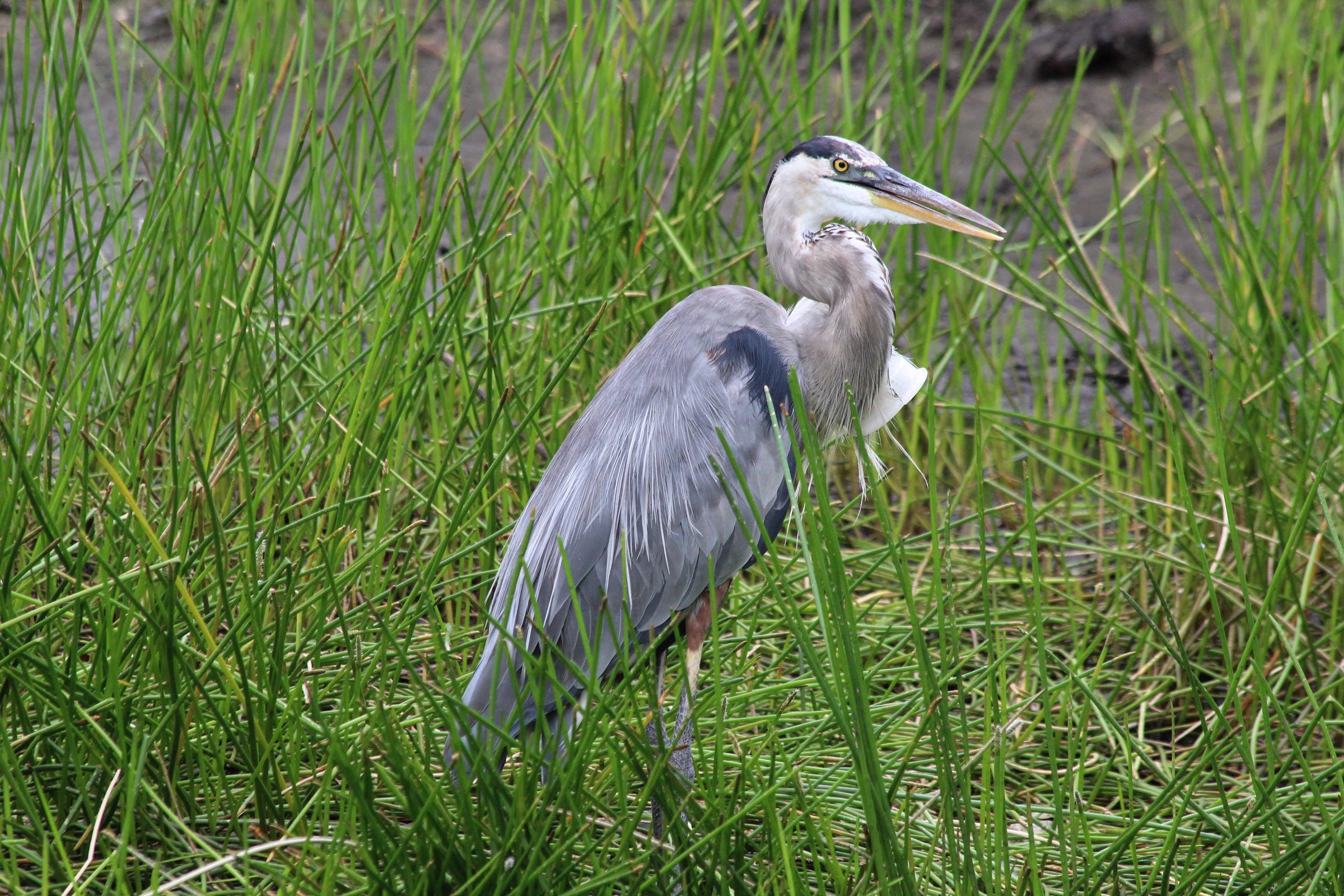
Long before I decided to adopt a highway from the Florida Department of Transportation, the sight of littered roadsides spurred a sense of angst and hopelessness, and rightly so. Trash on the ground is a stark reminder of our human failings, a visible expression of carelessness and destructive habits.
But all those angsty emotions were fleeting: once the litter was out of sight, it was out of mind— and easier to ignore. It also wasn’t my problem. It’s not like the litter was mine. But in 2017, when I first began my journey into nature photography, seeking out beauty in the natural world came with a caveat: the inability to look away.
It’s a global problem
The world has a complicated relationship with trash and many countries struggle to keep their cities and neighborhoods clean. There are global hotspots — most notably in places associated with socioeconomic factors and location — where littering habits affect both land and bodies of water. The Philippines, for example, has 5 of the top 10 hotspots for plastic food wrappers, whereas Jamaica has 3 of the top 10 hotspots for plastic bottles. Cigarette butts were more common in Southern Europe and North Africa.
Many, if not most, of the littering hotspots were associated with bays, seas and lakes such as the Mediterranean Sea, the Bay of Bengal, the South China and Philippine seas, the Gulf of Mexico, the Caribbean Sea, Lake Malawi and the Great Lakes of North America.
Here in the United States, and despite the country’s wealth, laws and ordinances, litter remains an environmental issue. According to a study released in 2021 by the organization Keep America Beautiful, nearly 50 billion pieces of litter were found along U.S. roadways and waterways, equaling 152 items for each U.S. resident. The good news, believe it or not, was that these numbers were actually down 54 percent since the 2009 litter study.
In Florida, many of our state parks, beaches, and attractions are kept relatively clean due to public and private cleanup efforts. But roadside trash, more often on busier streets and highways and high density areas, is worrisome, especially when it lingers.
Losing touch with nature
Though the pleasures of modern life appear to vastly outweigh any downsides, studies repeatedly prove that we feel more connection and find deeper meaning within the natural world. And yet, statistics show a steady shift in how people spend their time and what they care about. Digital tools and technology now appear to dominate every aspect of life — from work, leisure and socializing.
Further complicating matters is the emergence of Artificial Intelligence. It’s important to note that AI research organizations and experts are touting the ability for AI to ‘save the natural world’ in a number of different ways including decoding animal language, identifying changes in ecosystems and better understanding biodiversity. And perhaps this is all true and incredible breakthroughs await.
But the AI process involves building algorithms and transferring aspects of the human brain into a machine. It is the increasing of automation, relying more and more on computer sophistication and leading to a lack of human engagement and understanding. A quick history lesson or a dystopian novel can provide a few useful clues as to where this could all lead.
So what does this have to do with litter? That all depends on whether our digital habits and reliance on computers can lead to a better connection with nature. I’m not so sure it can. Because it’s difficult to care for something without a strong connection to it, everyone knows that.
Dirty hands, clean conscious
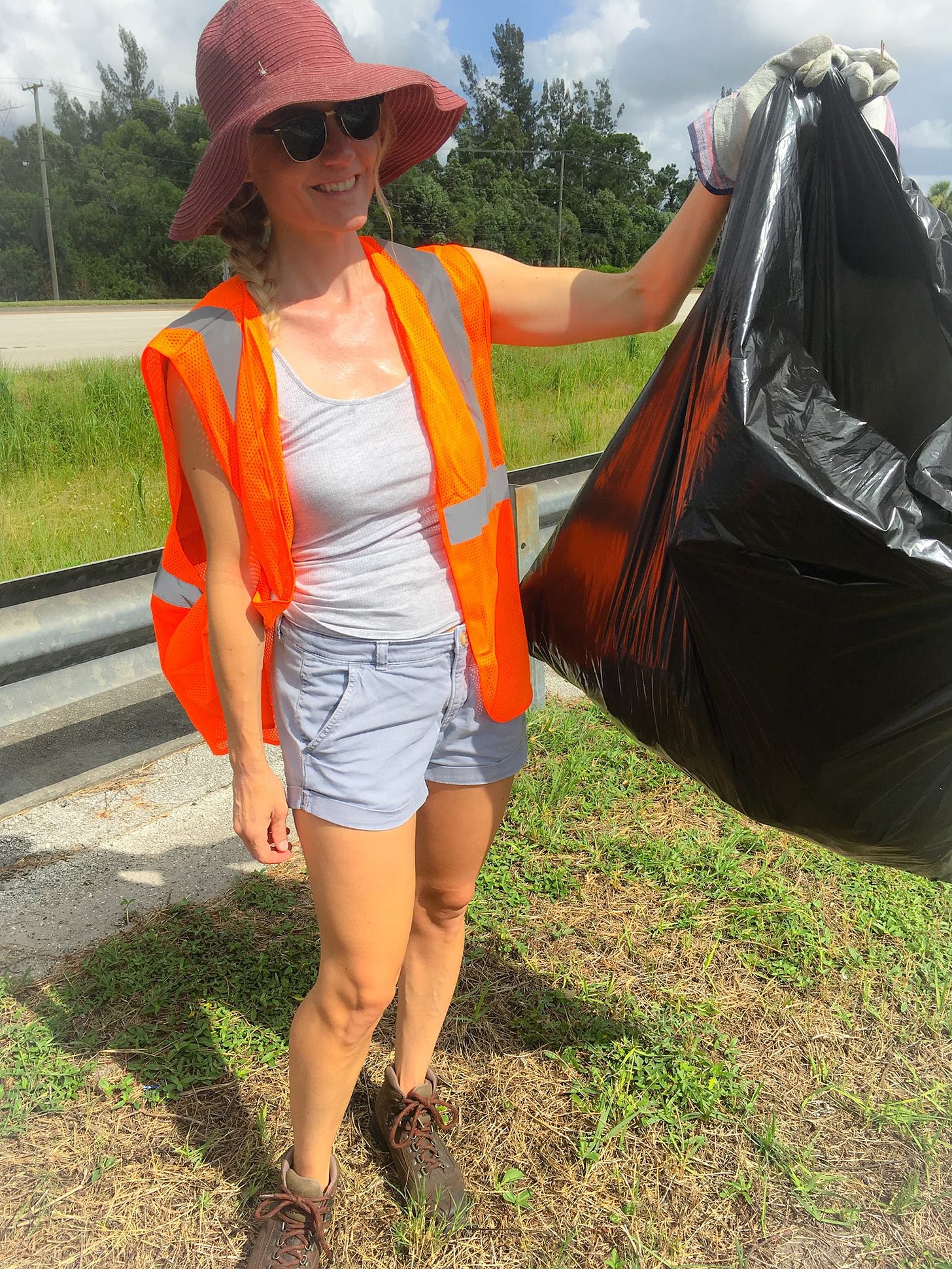
It all started with a cardboard box. A large and very dirty cardboard box sitting roadside for weeks. On one side of the box, an endless stream of traffic traveling north on State Rd. 441. On the other side, a canal where wading birds, iguanas, butterflies, dragonflies, and other animals lingered underneath sunshine and blue Florida skies.
But it wasn’t about the box, really. The box was a symbol — an eyesore —and the start of a four year journey revolving around trash. Because each time I passed this section of road on the way home, the soggy, muddied, loathsome cardboard box started speaking to my subconscious, growing louder with each passing day.
Why won’t anyone get that big ugly box and trash off the side of the road? I asked this repeatedly, even posting a comment about it in the neighborhood app, Nextdoor.
The individual who responded did provide a few helpful clues but also reinforced a collective attitude about litter: don’t worry, someone else will do it. It’s a common mindset and expectation here in the states and why wouldn’t it be? We pay taxes (quite high in some places) so that the government will take care of things like roads, bridges, damns, waterways, sewer, and yes, litter cleanup. But it became evident with each passing day, that the government wasn’t coming to get the litter, at least not anytime soon.
I contacted the Florida Department of Transportation a few days after that exchange, expressing interest in a cleaner section of State Rd. 441, and promptly adopted the two mile stretch on both sides of the street (four miles total). It didn’t take much to make it happen. A little grit; a lot of frustration. And now the road was mine.
***
For four years, that roadside was my baby and I fought to keep it clean. Thankfully I had help: my husband, Patrick, fellow neighbors and several friends attended cleanups when they could. I won’t bore you with the details of what we found — mostly bottles and wrappers, but sometimes weird things too like a bag of urine, dead animals, hospital gowns, and drug paraphernalia. It’s all part of the deal: litter is gross but someone has to clean it up.
I’d like to think it scored me points with the birds, the flowers, the butterflies. I’d like to think that those hours cleaning outdoors solidified my connection to nature. I’d like to think that my small efforts made a big difference. And here’s what I do know: the instant gratification of seeing littered nature turn clean and green again was off the charts.
You should try it sometime: Adopt a road (alone or with a team) and change the trajectory of your small corner of the universe.


